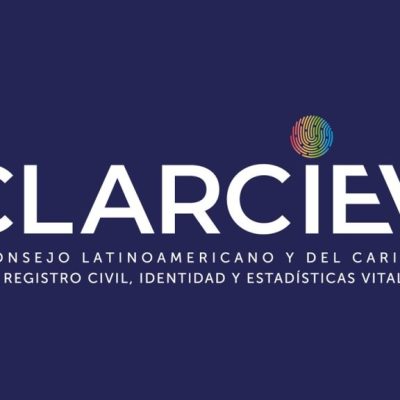The Global Alliance: Stronger Together
Addressing statelessness effectively requires a multi-stakeholder approach. We must combine different expertise, ideas, resources, and experiences to tackle the diverse issues that underpin statelessness. Working with a variety of other organizations can give the issue greater visibility and attention and, as a result, change can be realized much faster is there is sufficient commitment from all stakeholders.
I work for Haki Centre Organization (HCO), a non-governmental organization that is promoting equal and non-discriminatory access to nationality and an end to statelessness in Kenya. We support stateless communities, as well as other local communities that are facing citizenship challenges to realize their rights, access civil documentation, and undertake advocacy efforts.
Our model involves working with paralegals from affected populations to provide legal empowerment and strengthen capacity of the community to participate in seeking solutions. HCO has a decade of experience on statelessness, working closely with the government and UNHCR to resolve statelessness and to protect the rights of stateless persons. We have worked with the formerly stateless Makonde and Pemba groups and are currently supporting people of Rwandese and Burundian origin to access their right to a nationality.
One of the challenging aspects of our work is convincing people who have been stateless for a protracted period that change is possible but only if they are part of it – because we must walk the journey together. The shift from a non-believer to an active ambassador takes time, effort and trust by the community.
But the more challenging aspect is keeping the community engaged and motivated when a solution is not coming fast enough. It is painful to see people abandon the fight, resign to fate and resort to coping mechanisms. This is why the multi-stakeholder approach is so important – it will take all of us working together to resolve this critical issue once and for all.
As the #IBelong campaign comes to an end, HCO believes that the Global Alliance provides an excellent opportunity for its members to learn from and be motivated by the gains, lessons, challenges, and opportunities of the last 10 years. More importantly, it gives us a new collaborative approach to work together with renewed enthusiasm and commitment to accelerate prevention and eradication of statelessness.
HCO is excited at the prospect of working together with diverse stakeholders leveraging the immense experience (lived and learned) – as well as the resources, expertise, tools, networks, and workstreams that the Global Alliance will offer – to super-charge effective solutions. We have an opportunity to mobilise and strengthen national level work, bolster cross-regional learning and share best practices through the Global Alliance’s Regional Network Labs.
We believe that the Global Alliance will strengthen collaboration with the Government of Kenya in terms of pledge implementation toward the eradication of statelessness and lend HCO global visibility and an opportunity to network and access new funding streams. As HCO, we will bring to our knowledge and learned experience of statelessness, while also lending our grassroots presence to ensure strong connection with affected people and the local context.
The Global Alliance centers stateless-led organizations and persons with lived experience of statelessness, which is commendable because it ensures accountability to and meaningful participation by those affected by statelessness. Acknowledging their lived experience and expertise in seeking durable solutions to the problem. Further, we think the Solution Seeker program is a game-changer, as it ensures that states commit to taking concrete measures to address statelessness within their territories and beyond.
We need to come together in this new Global Alliance to end statelessness. Together, we are stronger than the sum of our parts and our collective action is critical in accelerating effective solutions to wipe out statelessness.
5 December 2025

Latin American and Caribbean Civil Registration Week: An Initiative Ensuring Identity for All
The Latin American and Caribbean Council for Civil Registration, Identity, and Vital Statistics (CLARCIEV) is the organization behind the campaign “Latin American and Caribbean Civil Registration Week,” held from September 1 to 16, 2025, and which sought to safeguard the fundamental right to identity.
Under the slogan “Latin America and the Caribbean, a region without invisible people: identity for all!”, CLARCIEV intensified its efforts to register births, covering both children and adults who still lacked a birth certificate. As a result of the campaign a total of 32,177 birth registrations were performed.
Read more3 November 2025

One Year On: The Movement’s Journey Within the Global Alliance to End Statelessness
Proximity and privilege deeply shape whose voices are heard in the global struggle to end statelessness. For millions of stateless people, barriers such as geography, limited resources, and lack of access to documentation mean exclusion not only from their governments but also from the global humanitarian and advocacy spaces that claim to represent them. Meanwhile, those with passports and institutional power often move freely within international systems that remain inaccessible to the very people they aim to serve.
Read more18 June 2025

Ensuring Vocational Inclusion for Stateless Individuals
Stateless individuals face daily obstacles in accessing basic services – whether opening a bank account, booking travel, or securing employment. One often overlooked but fundamental barrier is the absence of a “stateless” or “undefined” nationality option in digital forms and application systems. Without it, individuals are frequently forced to enter inaccurate information or abandon applications altogether. Employers, including legal and HR teams, are often unsure how to process applications from individuals without nationality, even when they have the legal right to work. This lack of clarity and inclusion in administrative systems contributes – often unintentionally – to vocational exclusion.
An encouraging step forward came in August 2024, when UNHCR became the first UN agency to update its recruitment platform to accommodate stateless applicants. This progress followed sustained engagement by the stateless-led organization Apatride Network, whose advocacy helped identify and address technical barriers in the application process, that previously prevented stateless people from applying. In collaboration with its legal and human resources teams, UNHCR resolved the dropdown menu issue and clarified internal procedures – creating a more inclusive and accessible path for stateless candidates.
Read more